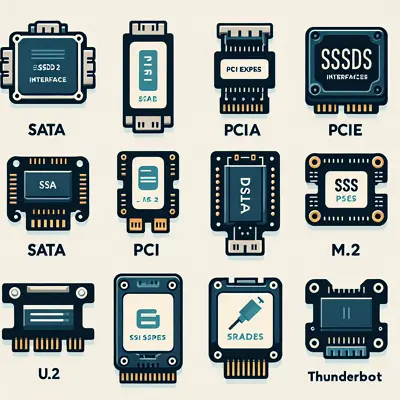
声明
本文为《哈佛管理导师》(Harvard ManageMentor [HMM])系列课程学习总结,属E家分享独家原创。

为学习和发展留出时间对于任何想要提高领导能力和绩效成果的人来说都至关重要。然而,对于许多管理者来说,很难找到时间。随着最后期限、日常任务和紧急会议的临近,学习领导往往会被搁置一旁。但提升自己并不一定要花费太多时间。事实上,很多事情都可以在你的日常工作中完成。
最新研究表明,结构化项目只应占领导力发展的10%。剩下的开发时间应该用于实验(70%)和自我发现(20%)。但那是什么样子的?你是怎么开始的?以下是几种行之有效的循证方法。
领导力发展
让我们从时间的最小部分开始——领导力发展。您可能已经熟悉平台,可以考虑在其上进行正式课程,但在点击任何视频的“播放”按钮之前,您需要做两件事。
首先,确定你想要发展的关键领导领域非常重要。你已经时间不多了,所以不要一下子解决太多问题。查看您拥有的任何数据或反馈,例如绩效评估或最近360调查的结果。确定你想提高的能力或技能不超过两项。
第二,给自己设定一个时间限制。真正地我经常看到领导者试图做得太多、太快,从而犯下严重错误。你会感到兴奋,在一天内观看一小时的内容,被太多的想法和建议淹没,要么失去动力,要么尝试实施,并因缺乏结果而气馁。相反,记住这是一场长期的比赛。从长远来看,你每天做的小动作比短时间的活动更有效。
幸运的是,许多在线节目都是以短视频的方式构建的,这意味着你每天只需要投入三到五分钟。找到与您确定的发展领域相匹配的课程。承诺每天看一到两个短视频。不要只盯着看,在身体或心理上记下关键要点和如何在一天中实施的想法。
自我发现
自我发现应该占你领导能力培养时间的20%。记住,你每天花在正式学习上的时间不到10分钟;我们希望在自我发现上多花一点钱。好消息是,你可以在正常的一天里这样做。
以下是你需要做的:花时间观察其他领导者。在您的组织中找到一位表现出与您的发展领域一致的行为的领导者。观察他们是怎么做的,做什么的。如果你有机会,问他们为什么要做一些事情,但不要强迫——我们通常不知道自己的行为。再说一遍,不要只看。做笔记并思考如何复制它。
做实验
现在最大的一块时间是实验。像科学家一样思考,进行小实验来改变你的典型行为。应用你从在线课程或观察其他领导者中学到的东西。例如,如果你需要与下属进行艰难的对话,尝试一种通常不会遵循的方法。在会议之前决定你将具体做什么。尝试并观察结果。即使失败了,你也可以依靠你已经知道的东西,继续下一个实验。
我的研究表明,实验对于加强你作为领导者的领导身份或自我认知至关重要。随着时间的推移,以新的方式行事将在你的自我意识中根深蒂固。
虽然实验是你开发时间预算中最大的一部分,但它也融入了你每天所做的事情,所以找时间记录和反思很重要。记下你的尝试以及它的工作原理。如果你还没有,可以试试写日记来记录你的想法和反思。
成为更好的领导者
领导力发展应被视为职业生活中持续的一部分。我们都知道,在时间允许的情况下,沉浸并专注于它是很好的,但时间并不总是允许的。这并不意味着你不能发展你的技能。成为一个更好的领导者所需要的只是奉献和少量的时间投入。
如果这仍然让人难以接受,请记住:我们错误地认为领导力发展只发生在工作场所。然而,研究表明,最有效的领导者总是随时随地学习。作为父母、社区体育运动员或志愿者,所有这些角色都需要领导力。思考从这些角色中你可以学到什么领导力,在这些其他环境中进行行为实验,并思考学习如何应用于你的工作角色。我保证,这将有助于加快您作为关键领域领导者的发展。
附上英文原文
How Busy People Can Develop Leadership Skills
by Darja Kragt. DEC 7, 2022
Carving out time for learning and development is critical for anyone who wants to improve their leadership competencies and performance outcomes. Yet finding the time for it is hard for many managers. With looming deadlines, daily tasks, and urgent meetings, learning to lead can often take the back burner. But advancing yourself doesn’t have to be excessively time-consuming. In fact, much of it can be done in the course of your daily work.
The latest research says that structured programs should only account for 10% of leadership development. The rest of your development should be spent on experimenting (70%) and self-discovery (20%). But what does that look like? And how do you get started? Here are several evidence-based approaches that work.
Leadership Development
Let’s start with the smallest chunk of time — leadership development. You may already be familiar with platforms to consider doing formal lessons on, but there are two things you need to do before you hit the “play” button on any video.
First, it is important to identify a key leadership area you want to develop. You’re already time-poor, so don’t try to tackle too much at once. Review any data or feedback that you have, such as performance reviews or results of a recent 360 survey. Identify no more than two competencies or skills you want to improve.
Second, set yourself a time limit. Really. I often see leaders making a critical mistake by trying to do too much, too fast. You will get excited, watch an hour’s worth of content in one day, get overwhelmed by too many ideas and tips, and either lose your motivation or try to implement and get discouraged by the lack of results. Instead, remember this is a long-term game. Small actions you do every day will be much more effective in the long term, than short bursts of activity.
Luckily, many online programs are built just this way with short videos, meaning that you only need to invest three to five minutes a day. Find a course that matches a developmental area you have identified. Commit to watching one or two short videos a day. And don’t just watch, make physical or mental notes of key takeaways and ideas for how to implement into your day.
Self-Discovery
Self-discovery should take up 20% of the time you spent on leadership development. Remember that you just spent less than 10 minutes a day on formal learning; we’re looking to spend just a bit more than that on self-discovery. And the good news is that you can do this during your normal day.
Here’s what you’ll need to do: spend time observing other leaders. Find a leader in your organization who demonstrates behaviors aligned with your areas of development. Observe how and what they do. If you have an opportunity, ask them questions about why they did something, but don’t push — we’re often not aware of our behaviors. Again, don’t just watch. Make notes and think about how you can replicate it.
Experimenting
Now the biggest chunk of time — experimenting. Think like a scientist and conduct small experiments to modify your typical behavior. Apply something that you have learned from online courses or by observing other leaders. For example, if you need to have a difficult conversation with a subordinate, try an approach you wouldn’t normally follow. Decide ahead of the meeting what specifically you will do. Try it and observe the results. Even if it fails, you can always fall back on what you already know and move on to the next experiment.
My research shows that experimenting is critical to strengthening your leadership identity or self-perception as a leader. Over time, acting in new ways will become ingrained in your sense of self.
While experimenting is the largest chunk of your development time budget, it’s also integrated into what you are doing each day and so it’s important to find time to record and reflect. Take notes about what you try and how it works. If you don’t already, experiment with a journaling practice to record your thoughts and reflections.
Becoming a Better Leader
Leadership development should be recognized as an ongoing part of professional life. And while dipping in and focusing on it when time allows is great, as we all know, time doesn’t always allow. That doesn’t mean that you can’t develop your skills. All it takes to become a better leader is dedication and a small investment of time.
If this still feels overwhelming, remember this: We mistakenly think that leadership development only occurs in the workplace. However, research suggests that most effective leaders learn all the time and everywhere. Being a parent, a community sports player, or a volunteer — all these roles involve an element of leadership. Think about what you can learn about leadership from these roles, conduct behavioral experiments in these other contexts, and reflect on how the learning applies to your work role. I guarantee it will help to accelerate your development as a leader in key areas you have identified.
【END】










